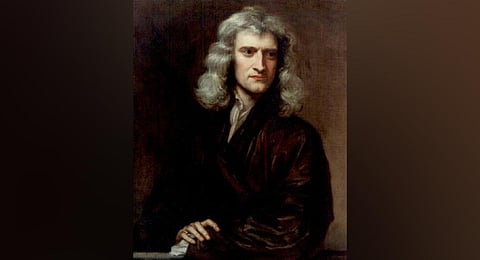

He brought the heavens on earth with his laws and marred the mystery surrounding the universe, while the Lord Chancellor, two Dukes, and three Earls were the pallbearers when he died aged 84 in 1727. The life of one of history’s greatest rationalists is a bundle of conundrums: Brilliant mathematician or alchemist?
Hermit or tyrant? Practitioner of the occult? None other than Albert Einstein, writing in the Smithsonian Magazine 200 years after his death, called him “the shining spirit who pointed out […] the path of Western thought and research and practical construction”. Author of Principia Mathematica, he is Sir Isaac Newton, and the rest, as they say…English poet Alexander Pope in a Bible-ian epitaph wrote, “Nature and nature’s laws lay hid in night: God said, Let Newton be! and all was light”. Principia emanated laws of motion and universal gravitation.
He showed it is for the same reason an apple falls to the ground that planets orbit the Sun. One law governs the heavens and earth. Newton’s father died before he was born in 1642. He was three when his mother remarried. Alone and abhorred by his stepfather, Newton would dive into his thoughts. In his peak, Newton would be in a room, devoid of sleep and food, solving the puzzle of the universe. Economist John Maynard Keynes acquired some of Newton’s hand-written private papers. From the pages, it emerged that Newton had dabbled in alchemy.
Keynes, in his address on the tercentenary of Newton’s birth in 1942, had written, “Newton was not the first of the age of reason. He was the last of the magicians.” Opticks, published in 1704, explained the properties of light and its spectrum and became a bulwark for the principles of wave theory. Newton became the Master of the Mint in 1699, responsible for producing England’s currency.
He supervised the monumental task of replacing the country’s old coins with reliable currencies, tracked down and interviewed counterfeiters, and many of them were sent to the gallows, including William Chaloner. Encapsulating Newton’s life, Aldous Huxley struck a gloomy chord about a man possessing “supreme intellect” who “...was incapable of friendship, love, fatherhood, and many other desirable things. As a man he was a failure; as a monster he was superb.”